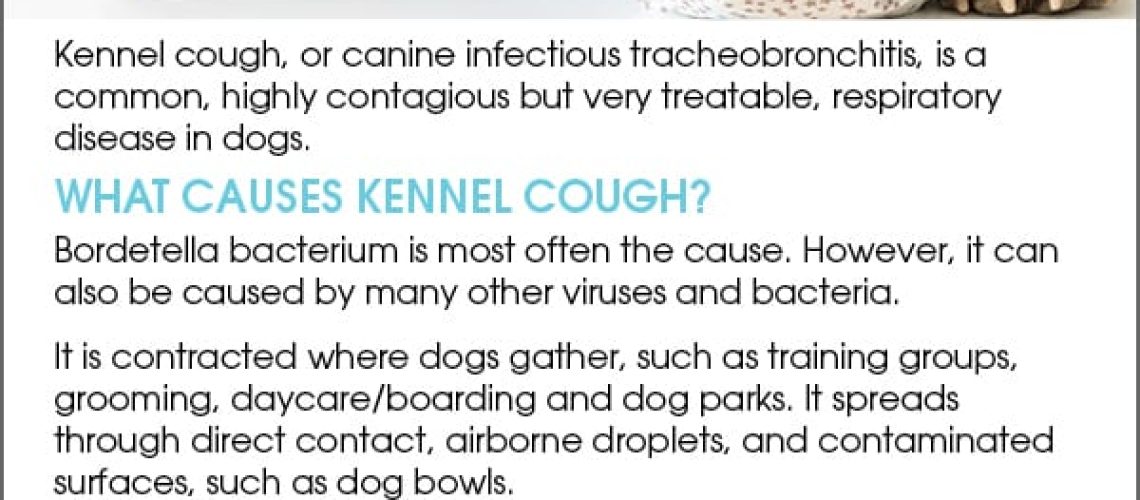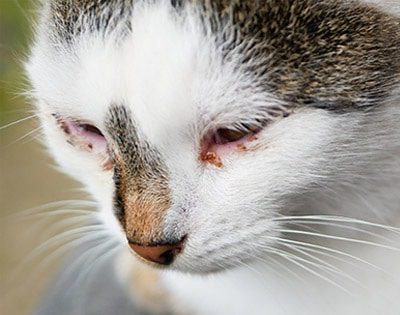Kennel cough, also known as canine infectious tracheobronchitis, is a highly contagious respiratory infection that affects puppies. This condition, often contracted in crowded environments such as kennels or dog parks, can cause a persistent cough and other respiratory symptoms. In this article, we will explore the causes, symptoms, and treatment options for kennel cough in puppies.
Key Takeaways:
- Kennel cough is a highly contagious respiratory infection that commonly affects puppies.
- It is primarily transmitted through close contact with infected dogs or exposure to contaminated surfaces.
- Common symptoms of kennel cough in puppies include a persistent dry cough, sneezing, and nasal discharge.
- Vaccination plays a crucial role in preventing kennel cough, and puppies should receive their initial vaccines at around 6-8 weeks of age.
- If a puppy develops kennel cough, it is important to isolate them from other dogs and seek veterinary treatment for proper management and recovery.
What is kennel cough and why is it a concern for puppies?
Kennel cough, also known as canine infectious tracheobronchitis, is a highly contagious respiratory disease that affects dogs. It is called "kennel cough" because it can spread easily in places where dogs are kept close together, such as boarding kennels or doggie daycare centers.
Puppies are particularly vulnerable to kennel cough because their immune systems are still developing. Their young age and lack of immunity make them more susceptible to infections. Kennel cough can cause discomfort and lead to more serious complications in puppies, such as pneumonia.
As a puppy owner, it's important to be aware of the risks of kennel cough and take precautions to protect your furry friend. Regular vaccinations and avoiding exposure to infected dogs can help prevent the spread of this respiratory illness.
How do puppies get kennel cough and what are the common symptoms they may have?
Puppies can contract kennel cough through direct contact with infected dogs or by inhaling airborne particles containing the bacteria or viruses that cause the illness. When an infected dog sneezes or coughs, tiny droplets containing the pathogens can be released into the air, allowing other dogs to breathe them in.
The common symptoms of kennel cough in puppies include:
- Frequent dry, hacking cough
- Sneezing
- Nasal discharge
- Loss of appetite
- Lethargy
- Mild fever
If you notice these symptoms in your puppy, it's important to seek veterinary care for a proper diagnosis and treatment plan. Early intervention can help prevent complications and ensure a speedy recovery for your furry friend.
Can kennel cough be prevented in puppies? If so, how?
Yes, kennel cough can be prevented in puppies through vaccination. There are vaccines available that provide protection against the most common pathogens responsible for kennel cough, such as Bordetella bronchiseptica and canine parainfluenza virus.
Vaccination is typically started when a puppy is around 6 to 8 weeks old and requires multiple booster shots to ensure adequate immunity. It's important to follow your veterinarian's recommended vaccination schedule to provide the best protection for your puppy.
In addition to vaccination, it's also essential to minimize your puppy's exposure to infected dogs or environments where the disease may be present. Avoid crowded dog parks or places where sick dogs are known to gather. Regularly disinfecting your puppy's toys, bedding, and living area can also help reduce the risk of infection.
Are certain puppy breeds more likely to get kennel cough?
All puppies, regardless of breed, are susceptible to kennel cough. However, some breeds may have a higher risk due to their anatomical features or genetic predispositions.
Brachycephalic breeds, such as Bulldogs and Pugs, with their short noses and narrow airways, may be more prone to respiratory infections like kennel cough. Their constricted air passages make it harder for them to clear out bacteria or viruses from their respiratory system.
Puppies with weakened immune systems or those living in stressful conditions (such as overcrowded shelters) may also be more susceptible to contracting kennel cough.
Is kennel cough contagious to other animals and how does it spread?
Kennel cough is highly contagious not only among dogs but also among other animals like cats. The disease spreads through direct contact with infected animals or by inhaling respiratory droplets released when an infected animal coughs or sneezes.
Common ways kennel cough can spread include:
- Close contact with infected dogs in places like boarding kennels, dog parks, or grooming salons
- Sharing contaminated toys, food bowls, or bedding
- Inhaling airborne particles containing the pathogens
It's important to be cautious and take preventive measures to limit the spread of kennel cough. Isolating infected animals and practicing good hygiene, such as regular handwashing and disinfecting surfaces, can help reduce the risk of transmission.
What should you do if you think your puppy has kennel cough? Are there any home remedies for their symptoms?
If you suspect that your puppy has kennel cough, it's crucial to consult a veterinarian for a proper diagnosis and treatment plan. The vet will examine your puppy and may recommend diagnostic tests to confirm the presence of kennel cough.
While there are no specific home remedies for treating kennel cough, there are some steps you can take to help alleviate your puppy's symptoms:
- Provide a warm and quiet environment for rest
- Avoid exposure to cold temperatures or drafts
- Maintain proper hydration by ensuring access to fresh water at all times
- Avoid using collars that put pressure on the throat, as it can exacerbate the coughing
- In some cases, your veterinarian may prescribe medications such as antibiotics or cough suppressants to manage your puppy's symptoms.
Are there any risks or complications associated with kennel cough in puppies?
Kennel cough itself is usually not life-threatening for puppies. However, if left untreated or if the puppy's immune system is weak, it can lead to more severe complications such as pneumonia.
Pneumonia occurs when the infection spreads from the upper respiratory tract to the lungs, causing inflammation and difficulty breathing. Puppies with pneumonia may exhibit symptoms such as rapid breathing, coughing up phlegm or blood, lethargy, and loss of appetite.
If you notice any signs of pneumonia or if your puppy's condition worsens despite treatment, it's important to seek immediate veterinary care. Prompt intervention can help prevent further complications and ensure a successful recovery.
How long does it take for a puppy to recover from kennel cough and what is the treatment plan?
The duration of recovery from kennel cough can vary depending on the severity of the infection and individual factors. In most cases, puppies start showing improvement within a week or two after starting treatment.
The treatment plan for kennel cough in puppies typically includes:
- Antibiotics: If a bacterial infection is present or suspected, antibiotics may be prescribed to target the specific bacteria causing the illness.
- Cough suppressants: These medications help alleviate coughing and provide relief for your puppy while their body fights off the infection.
- Rest and isolation: It's important to allow your puppy plenty of rest in a quiet environment away from other dogs to prevent spreading the disease.
- Supportive care: Ensuring proper hydration and nutrition are essential during recovery. Offer easily digestible food and encourage drinking water regularly.
Can a puppy with kennel cough play with other dogs once they're better?
Once your puppy has fully recovered from kennel cough and received clearance from their veterinarian, they can gradually resume socializing and playing with other dogs. However, it's important to introduce them to healthy and vaccinated dogs in a controlled environment.
It's recommended to wait until your puppy has completed the full course of treatment and shows no signs of illness before allowing them to interact with other dogs. This helps prevent the risk of reinfection or spreading the disease to susceptible animals.
Remember, prevention is key in protecting your puppy from kennel cough. Maintaining regular vaccinations and practicing good hygiene can go a long way in keeping your furry friend happy and healthy.
| Conclusion | |
| Kennel cough is a common respiratory infection that affects puppies. | It can be easily prevented through vaccination and proper hygiene. |
| Early detection and prompt treatment are essential for a puppy's recovery. | By following preventive measures, such as avoiding crowded places and maintaining a clean environment, the risk of kennel cough can be minimized. |
| Remember, a healthy puppy is a happy puppy! | |
How serious is kennel cough in puppies?
Is kennel cough a dangerous or life-threatening condition? Although it can be annoying, kennel cough is typically not dangerous and often requires no treatment. However, in puppies, older dogs, or those with pre-existing medical conditions, the condition can be more severe and potentially develop into pneumonia.
How do you treat kennel cough in puppies?
For dogs with kennel cough, the best treatment is similar to how humans treat a head cold - rest, fluids, and time. It's important to encourage your dog to take it easy for a few weeks and make sure they stay hydrated by drinking plenty of water or clear, unseasoned broth. Wet food can also be beneficial during this period.
Is kennel cough common in puppies?
Puppies are at a higher risk for this disease due to their underdeveloped immune system. Unfortunately, this disease is quite common and I typically encounter at least one case per week at the clinic. Some days, we even see multiple cases of kennel cough.
How do I know if my puppy has kennel cough?
How can I determine if my dog has kennel cough? The main indication is a persistent dry cough that does not produce any phlegm and can resemble a goose honk or the sensation of something being stuck in their throat. Other symptoms of kennel cough in dogs may include a runny nose, sneezing, decreased energy, loss of appetite, and a mild fever.
What is the survival rate of kennel cough in puppies?
In the majority of cases of CIRD (Canine Infectious Respiratory Disease), the outlook is highly favorable. Treatment is often unnecessary, and most dogs will recover without intervention within a 10-day period.
What can be mistaken for kennel cough?
If you are unsure whether your dog has Canine Influenza or kennel cough, it is recommended to consult a veterinarian.

















